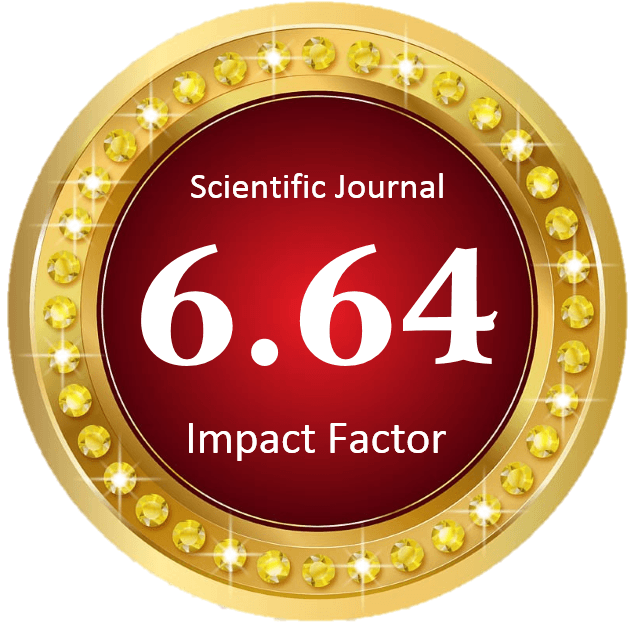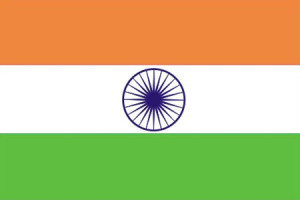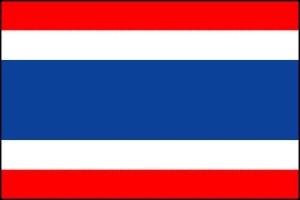Journal policy
- Peer Review and Publication Policy
- Publication Ethics and Malpractice Statement
- PEER REVIEW AND PUBLICATION POLICY
Peer-review is the system used to assess the quality of a manuscript before it is published. Reviewers in the relevant research area assess submitted manuscripts for originality, validity, and significance to help editors to determine whether the manuscript should be published in the journal.
Initial manuscript evaluation
The Editor first evaluates all manuscripts. It is rare, but it is possible for an exceptional manuscript to be accepted at this stage. Manuscripts rejected at this stage are insufficiently original, have serious scientific flaws, have poor grammar or English language, or are outside the aims and scope of the journal. Those that meet the editorial policies and a minimum quality level are normally passed on to at least 2 experts for review.
Type of Peer Review
The journal employs the double-blind peer review process, where both reviewers and authors remain anonymous throughout the review process.
How the Reviewers is selected
Whenever possible, Reviewers are matched to the paper according to their expertise and our database is constantly being updated.
Reviewer’s reports
Reviewers are asked to evaluate whether the manuscript: – Is original – Is methodologically sound – Follows appropriate ethical guidelines – Has results which are clearly presented and support the conclusions – Correctly references previous relevant work.
Language correction is not part of the peer review process, but Reviewers may, if so wish, suggest corrections to the manuscript.
How long does the review process take?
The time required for the review process is dependent on the response of the Reviewers. Should the Reviewer’s reports contradict one another or a report is unnecessarily delayed, a further expert opinion will be sought. In rare cases for which it is extremely difficult to find a second Reviewers to review the manuscript, or when the one Reviewer’s report has thoroughly convinced the Editor, decisions at this stage to accept, reject or ask the author for a revision are made on the basis of only one Reviewer’s report. The Editor’s decision will be sent to the author with recommendations made by the Reviewers, which usually includes verbatim comments by the Reviewers. Revised manuscripts might be returned to the initial Reviewers who may then request another revision of a manuscript.
Final report
A final decision to accept or reject the manuscript will be sent to the author along with any recommendations made by the Reviewers and may include verbatim comments by the Reviewers.
Editor’s Decision is final
Reviewers advise the editor, who is responsible for the final decision to accept or reject the article.
- PUBLICATION ETHICS AND MALPRACTICE STATEMENT
It is necessary to agree upon standards of expected ethical behavior for all parties involved in the act of publishing: the author, the journal editor, the peer reviewer and the publisher. Our ethic statements are based on COPE’s Best Practice Guidelines for Journal Editors.
The journal is dedicated to following best practices on ethical matters, errors, and retractions. Any kind of unethical behavior is not acceptable, and the Editorial board do not tolerate plagiarism in any form.
Authors submitting articles to journal affirm that manuscript contents are original.
Duties of Editors
- Publication decisions: The editors at the Journal are responsible for deciding which of the articles submitted to the journal should be published. The editor may be guided by the policies of the journal’s editorial board and constrained by such legal requirements as shall then be in force regarding libel, copyright infringement and plagiarism. The editor may confer with other editors or reviewers in making this decision.
- Fair play: An editor at any time evaluate manuscripts for their intellectual content without regard to race, gender, sexual orientation, religious belief, ethnic origin, citizenship, or political philosophy of the authors.
- Confidentiality: The editor and any editorial staff must not disclose any information about a submitted manuscript to anyone other than the corresponding author, reviewers, potential reviewers, other editorial advisers, and the publisher, as appropriate.
- Disclosure and conflicts of interest: Unpublished materials disclosed in a submitted manuscript must not be used in an editor’s own research without the express written consent of the author.
Duties of Reviewers
- Contribution to Editorial Decisions: Peer reviewer assists the editor in making editorial decisions and through the editorial communications with the author may also assist the author in improving the paper.
- Promptness: Any selected reviewer who feels unqualified to review the research reported in a manuscript or knows that its prompt review will be impossible should notify the editor and excuse himself from the review process.
- Confidentiality: Any manuscripts received for review must be treated as confidential documents. They must not be shown to or discussed with others except as authorized by the editor.
- Standards of Objectivity: Reviews should be conducted objectively. Personal criticism of the author is inappropriate. The reviewer should express their views clearly with supporting arguments.
- Acknowledgment of Sources: Reviewers should identify relevant published work that has not been cited by the authors. Any statement that an observation, derivation, or argument had been previously reported should be accompanied by the relevant citation. A reviewer should also call to the editor’s attention any substantial similarity or overlap between the manuscript under consideration and any other published paper of which they have personal knowledge.
- Disclosure and Conflict of Interest: Privileged information or ideas obtained through peer review must be kept confidential and not used for personal advantage. Reviewers should not consider manuscripts in which they have conflicts of interest resulting from competitive, collaborative, or other relationships or connections with any of the authors, companies, or institutions connected to the papers.
Duties of Authors
- Reporting standards: Author’s reports of original research should be presented an accurate account of the work performed as well as an objective discussion of its significance. Underlying data should be represented accurately in the paper. A paper should contain sufficient detail and references to permit others to replicate the work. Fraudulent or knowingly inaccurate statements constitute unethical behavior and are unacceptable.
- Data Access and Retention: Authors are asked to provide the raw data in connection with a paper for editorial review, and should be prepared to provide public access to such data (consistent with the ALPSP-STM Statement on Data and Databases), if practicable, and should in any event be prepared to retain such data for a reasonable time after publication.
- Originality and Plagiarism: The authors should ensure that they have written entirely original works, and if the authors have used the work and/or words of others that this has been appropriately cited or quoted.
- Multiple, Redundant or Concurrent Publication: An author should not in general publish manuscripts describing essentially the same research in more than one journal or primary publication. Submitting the same manuscript to more than one journal concurrently constitutes unethical publishing behavior and is unacceptable.
- Acknowledgment of Sources: Proper acknowledgment of the work of others must always be given. Authors should cite publications that have been influential in determining the nature of the reported work.
- Authorship of the Paper: Authorship should be limited to those who have made a significant contribution to the conception, design, execution, or interpretation of the reported study. All those who have made significant contributions should be listed as co-authors. Where there are others who have participated in certain substantive aspects of the research project, they should be acknowledged or listed as contributors. The corresponding author should ensure that all appropriate co-authors and no inappropriate co-authors are included in the paper and that all co-authors have seen and approved the final version of the paper and have agreed to its submission for publication.
- Hazards and Human or Animal Subjects: If the work involves chemicals, procedures or equipment that have any unusual hazards inherent in their use, the author must clearly identify these in the manuscript.
- Disclosure and Conflicts of Interest: All authors should disclose in their manuscript any financial or other substantive conflicts of interest that might be construed to influence the results or interpretation of their manuscript. All sources of financial support for the project should be disclosed.
- Fundamental errors in published works: When an author discovers a significant error or inaccuracy in his/her own published work, it is the author’s obligation to promptly notify the journal editor or publisher and cooperate with the editor to retract or correct the paper.
Retraction Policy
When plagiarism has been found to have occurred, the Editorial Board will take the actions as determined by the type of plagiarism. Unless determined otherwise during the investigation, all authors are deemed to be individually and collectively responsible for the content of a plagiarizing paper. Editorial Board places the investigation of each claim of plagiarism at the highest priority for resolution and action.
Action(s) in case of plagiarism in a published article and proven misconduct:
- A letter is sent to authors involved in. They are informed about the perpetrated act.
- Intimation to Author’s University/ Department about the incident of misconduct.
- Blacklisting of all Authors involved in the article, banning them to publish any content with Journal.
- PDF of the article will no longer be available online.
- The initial PDF document will be replaced by a retraction note.
- We pursue the retraction of this article from other online indexing services.
Copyright Policy
All papers in the journal are licensed under a Creative Commons Attribution 4.0 International License, which permits unrestricted use, distribution, and reproduction in any medium, even commercially as long as the original work is properly cited.
Authors retain copyright of their work. Once the material has been accepted for publication, authors are asked to sign a copyright form verifying that they have the right to publish the material and that they grant permission to the journal to publish their work online. In addition:
- Authors retain the right to publish extended versions of their material elsewhere, provided the original publication is acknowledged.
- Authors retain the right to publish their work in online repositories, internal technical reports, etc.
- Journal does not pay honoraria to authors.
- Journal has the right to edit the material to meet the publication standards.













